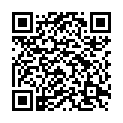|
|
|
| Module code: MAIM-113 |
|
|
4V (4 hours per week) |
|
6 |
| Semester: 1 |
| Mandatory course: yes |
Language of instruction:
English |
Assessment:
Written exam (60 minutes / can be repeated semesterly) + term paper with presentation (can be repeated annually);
Weighting: 1:1
[updated 30.01.2020]
|
MAIM-113 (P420-0298, P420-0299) International Management, Master, ASPO 01.10.2020
, semester 1, mandatory course
|
60 class hours (= 45 clock hours) over a 15-week period.
The total student study time is 180 hours (equivalent to 6 ECTS credits).
There are therefore 135 hours available for class preparation and follow-up work and exam preparation.
|
Recommended prerequisites (modules):
None.
|
Recommended as prerequisite for:
MAIM-212 International Marketing
MAIM-311 Seminar International Management
MAIM-322 International Management Workshop
[updated 14.09.2025]
|
Module coordinator:
Prof. Dr. Stefanie Jensen |
Lecturer:
Prof. Dr. Malte Beinhauer
Prof. Dr. Stefanie Jensen
[updated 30.01.2020]
|
Learning outcomes:
After successfully completing this module the student should be able to
Critically discuss the reasons and catalysts for international business activities and their consequences, as well
as reflect upon this from an ethical-moral standpoint,
Discuss selected internationalization theories and evaluate their usefulness,
Discuss and explain the steps of the strategic international management process,
Discuss the dimensions of internationalization strategies, use and evaluate them,
Understand and reflect on the implementation of strategies as a methodological challenge and apply the most
important methods of strategy implementation,
Apply the methods learned to their own business idea in a transdisciplinary manner and create a business plan as
an instrument of their own independently developed business idea,
Present the developed business plan in a structured manner,
In teams, intensify their knowledge about interaction, communication, motivation and moderation in team work
and strengthen their empathy, communication, negotiation and argumentation skills.
[updated 02.12.2019]
|
Module content:
Understanding of corporate activities within an international framework
Internationalization theories
Dimensions and the process of strategic management in international resp. globalized companies
Strategy building (considerations), implementation and control techniques
Business planning/ business models
Project marketing and sales
Main features and content of a business plan
Risk management
Change management
Decision making
Project management as an enabler for strategy implementation
[updated 02.12.2019]
|
Teaching methods/Media:
Lecture with integrated tutorial, term paper, group work and case studies
[updated 02.12.2019]
|
Recommended or required reading:
Glowik (current edition), Market Entry Strategies : Internationalization Theories, Network Concepts and Cases of Asian Firms.
Wheelen/Hunger (current edition), Strategic Management and Business Policy.
Kutschker/Schmid (current edition), Internationales Management.
Morschett/Schramm-Klein/Zentes (current edition), Strategic International Management.
Grünig/Morschett (current edition), Developing International Strategies.
Osterwalder/Pigneur (current edition), Business Model Generation: A Handbook for Visionaries, Game Changers, and Challengers.
Mintzberg/Quinn/Lampel/Goshal (current edition), The Strategy Process.
DeThomas, Derammelaere (current edition): Writing a Convincing Business Plan.
Current expert articles in English-language business magazines, such as the Harvard Business Review
[updated 17.12.2019]
|


